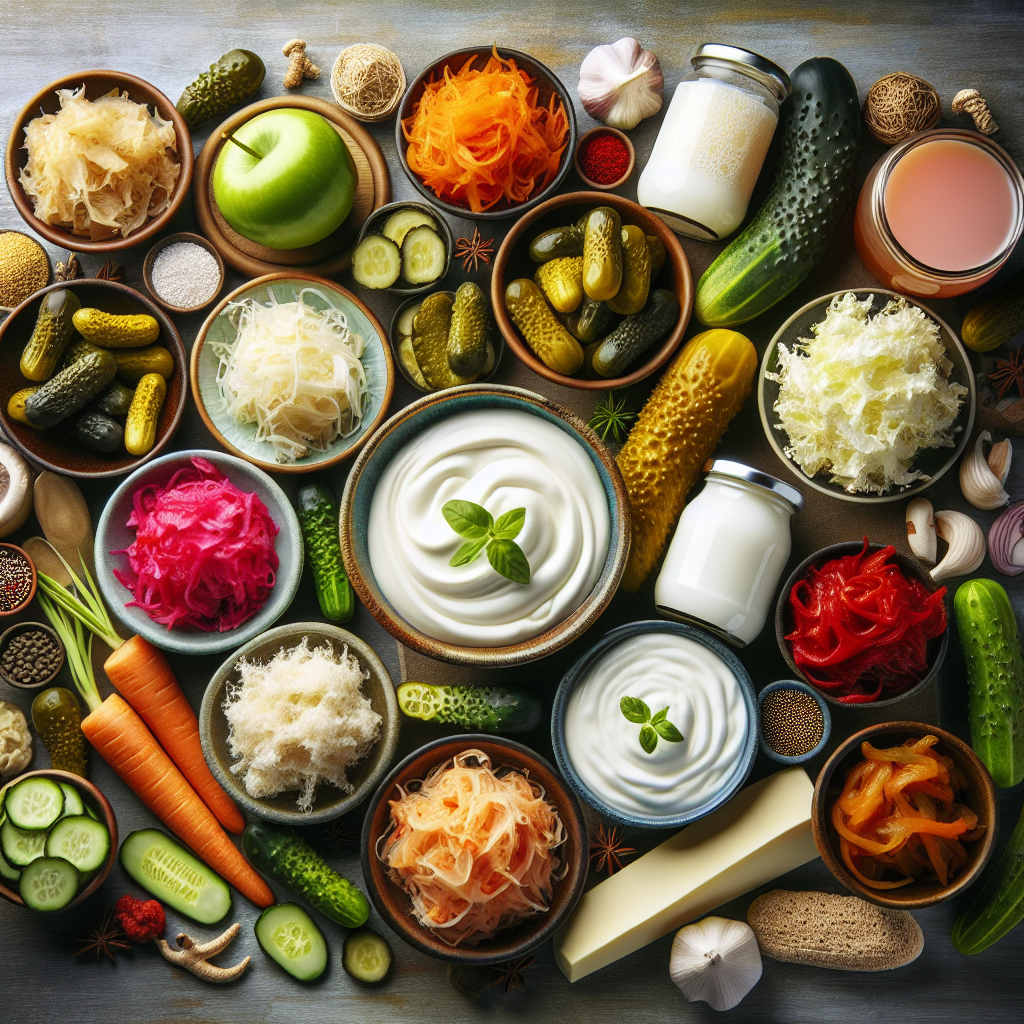Exploring The Health Benefits of Fermented Foods
Are you committed to leading a healthier lifestyle and want to try something different? Among the various diet trends and fads, one aspect that has caught science’s attention lately is the health advantages fermented foods offer. The started fermented food trend has its roots deep in human history when refrigeration was non-existent. Today, fermented foods aren’t just about practicality but are known for their potent health benefits, particularly their contribution to gut health. Let’s dive into the world of fermented foods and explore nine such commendable edibles you should include in your diet.
The Allure of Fermented Foods
Fermentation is an age-old preservation process that contributes to the creation of microorganisms like bacteria and yeast. These bacteria are probiotics, beneficial to humans in many ways, particularly in balancing our gut flora. The fermentation process provides a unique tangy flavor, enriching the food both nutritionally and in taste.
1. Yogurt
Our first stop in the fermented foods tour is the humble yogurt. Apart from being a great source of proteins and calcium, yogurt is packed with probiotics such as Lactobacillus and Bifidobacteria, instrumental in keeping your gut health in top shape. Just ensure that you opt for natural or Greek yogurt and stray away from flavored or added sugar variants.
2. Kimchi
A staple in Korean cuisine, Kimchi is a fermented dish primarily made from cabbage, radish, and spices. Kimchi not only serves as a rich probiotic source but is also packed with vitamins A, B, and C.
3. Sauerkraut
Sauerkraut, or fermented cabbage, may not sound too appetizing, but it’s a boon for your gut. It’s rich in dietary fibers, vitamin C, K, and B, manganese, iron, and probiotics. While buying sauerkraut, ensure that you’re getting unpasteurized versions as the pasteurization process kills the healthy bacteria.
4. Kefir
Kefir is a fermented milk product with a consistency and taste similar to drinkable yogurt. Research suggests that kefir surpasses yogurt in terms of its probiotic content. Kefir made from whole fat dairy also has the added benefit of being a good source of calcium and protein.
5. Pickles
Not to be confused with vinegar-pickled cucumbers commonly found in supermarkets, fermented pickles are outstanding sources of healthy probiotics—we’re talking about the traditional version that uses natural fermentation. Pickles are also a good source of vitamin K, essential for blood clotting.
6. Tempeh
Tempeh, a traditional Indonesian product, is made of fermented soybeans. It is packed with protein, implying this could be one top-notch addition to your diet, especially if you’re vegetarian or vegan.
7. Miso
Miso, a traditional Japanese seasoning, is created by fermenting soybeans with salt and kojikin fungus. Miso is often used in soups and is an excellent source of protein and fiber. It is also rich in various nutrients like vitamin K, manganese, and copper.
8. Kombucha
Kombucha, a fermented tea, has become increasingly popular in recent years. This fermented tea is populated with a host of healthy bacteria or probiotics. Note that it also contains a small amount of alcohol due to fermentation.
9. Sourdough Bread
Lastly, sourdough bread—a product of fermented dough—is a more digestible option than regular bread thanks to the presence of the bacteria Lactobacillus which predigests starches during the fermentation process.
Wrapping It Up
Including fermented foods in your diet can significantly boost your gut health and overall wellness. These foods not only come with probiotics but are highly nutritious. The idea is not to overhaul your current diet but to supplement it with these health-packed choices.
Conclusion
The world of fermented food might seem like an unconventional approach to healthy eating, but the advantages can’t be overlooked. By regularly consuming yogurt, kimchi, sauerkraut, kefir, pickles, tempeh, miso, kombucha, and sourdough bread, you embrace a diet rich in probiotics and essential nutrients. Remember that unpasteurized and unsweetened versions of these foods provide the best health benefits. Start slow and gradually incorporate these foods into your meals to permit your body to adjust. Soon enough, you’ll start noticing the improved effects on your digestion and overall well-being. It’s time to embark on your fermented food journey and savor the uniqueness it brings to your plate and health.
Original article: https://www.health.com/fermented-foods-7970958


